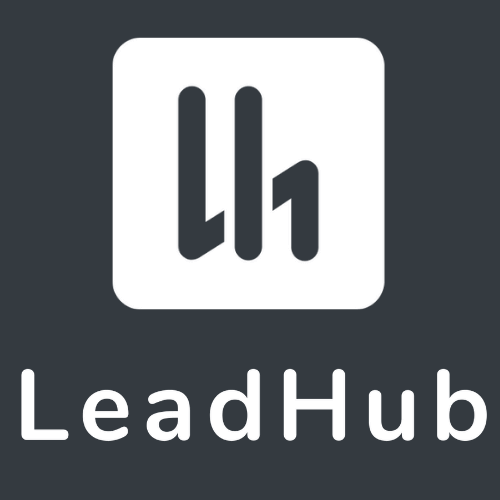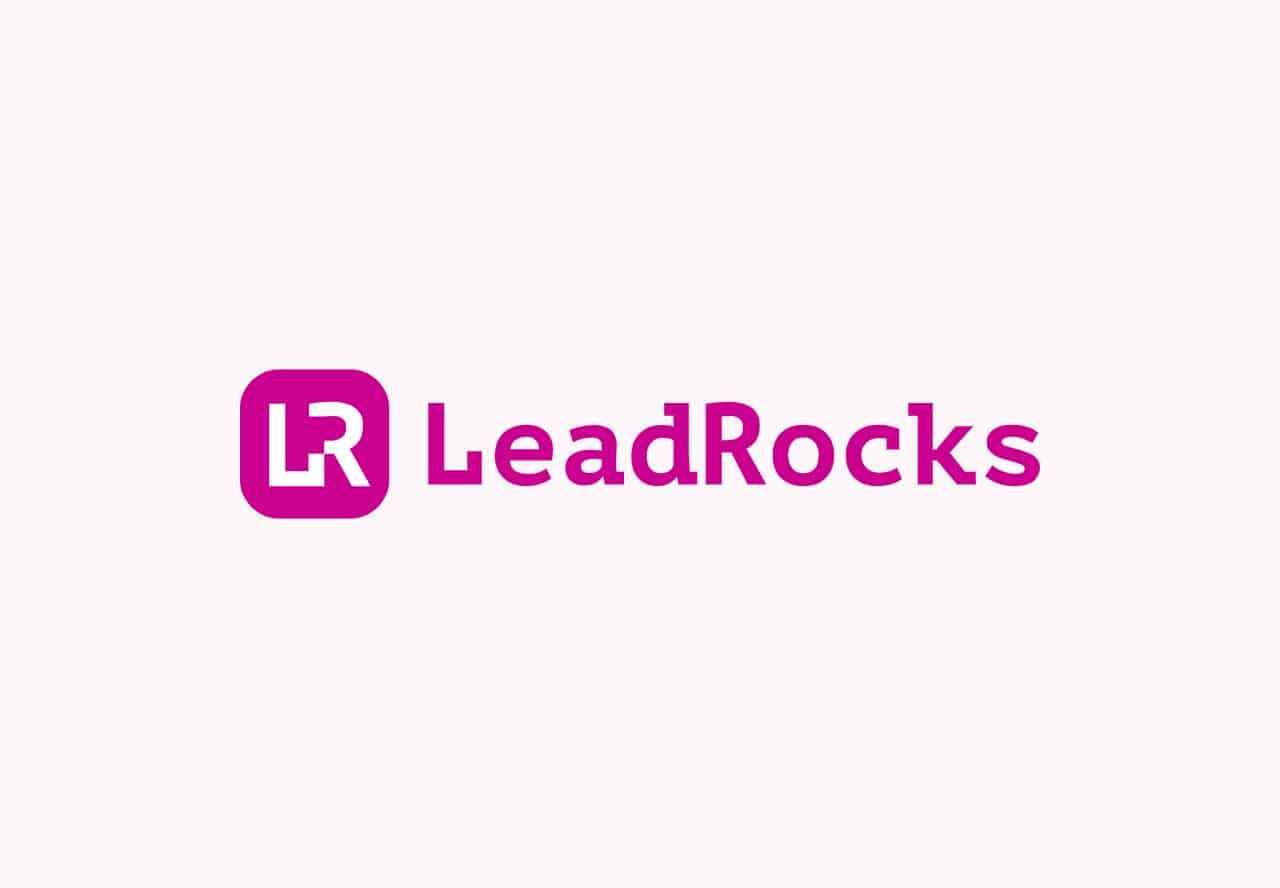Description

Salespanel

LeadHub
Comprehensive Overview: Salespanel vs LeadHub
Salespanel and LeadHub are both tools designed to enhance sales and marketing efforts, but they serve distinct functions and target slightly different markets. Here’s a comprehensive overview of each:
Salespanel
a) Primary Functions and Target Markets:
- Primary Functions:
- Lead Tracking & Scoring: Salespanel helps businesses track potential leads in real-time and score them based on their engagement and behavior.
- Visitor Identification: It identifies anonymous website visitors and provides detailed information about them, including company data.
- Marketing Automation: Offers tools to automate marketing workflows and engage leads through personalized content.
- Integration: Seamlessly integrates with CRM systems, email marketing tools, and other business applications.
- Target Markets:
- Primarily targets SMEs and enterprises looking for deeper insights into their lead data and wanting to optimize their sales funnel.
- Industries like SaaS, B2B services, and technology-oriented companies often use such tools.
b) Market Share and User Base:
- Salespanel is not among the giant players like Salesforce or HubSpot but has carved out a niche for itself, particularly appealing to companies looking for deep analytics without the complexity and cost associated with larger platforms.
- As a niche player, its user base is growing steadily, focusing on quality service and specific functionalities that larger platforms might overlook.
c) Key Differentiating Factors:
- Real-Time Monitoring: Provides instant data on lead behavior, which can be crucial for time-sensitive sales processes.
- Advanced Data Enrichment: Goes beyond basic tracking by providing enriched data that helps in deeper analysis of potential leads.
- Ease of Use: Known for its user-friendly interface, allowing businesses to quickly onboard and start utilizing its features without extensive training.
LeadHub
a) Primary Functions and Target Markets:
-
Primary Functions:
- Lead Management: LeadHub focuses on capturing, organizing, and distributing leads to appropriate sales channels or teams.
- Pipeline Management: It provides tools for managing sales pipelines, ensuring leads are followed up with appropriately.
- Analytics and Reporting: Offers analytics to track lead sources, conversion rates, and sales performance metrics.
- CRM Integration: Similar to Salespanel, it integrates with a variety of CRM platforms to consolidate lead data.
-
Target Markets:
- Targets mid-sized businesses and enterprises that require robust lead management and sales pipeline optimization.
- Often used in industries like real estate, financial services, and telecommunication where lead management is critical.
b) Market Share and User Base:
- LeadHub also operates as a niche player, competing with established CRM systems and specialized lead management solutions.
- Its focus on specific industries where lead management is intricate contributes to a loyal user base that values industry-specific features over generalized systems.
c) Key Differentiating Factors:
- Industry-Specific Features: Developed features tailored to specific industries, making it more relevant and effective for those sectors.
- Customization & Flexibility: Offers a high degree of customization in setting up pipelines and workflows to match various sales processes.
- Customer Support: Known for strong customer support, especially during onboarding and customization stages, which helps in maintaining client satisfaction.
Comparative Analysis:
- Functionality: Salespanel excels in real-time lead tracking and analytics, while LeadHub provides comprehensive lead management and pipeline optimization.
- Target Audience: Salespanel is more analytics-focused, appealing to tech-oriented industries, whereas LeadHub focuses on broader lead management needs.
- Integration and Customization: Both offer CRM integration, but LeadHub provides more industry-specific customizations, making it slightly more flexible.
- Market Position: Both are niche players but serve different primary needs within the sales and marketing landscape, and neither claims a dominant market share compared to larger CRM solutions like Salesforce or HubSpot.
In conclusion, the choice between Salespanel and LeadHub would largely depend on the specific needs of a business—in terms of depth of analytics versus comprehensive lead and sales pipeline management.
Contact Info

Year founded :
2018
+91 65063 67698
Not Available
India
http://www.linkedin.com/company/salespanel

Year founded :
2011
Not Available
Not Available
United States
http://www.linkedin.com/company/lead-hub
Feature Similarity Breakdown: Salespanel, LeadHub
When comparing Salespanel and LeadHub, it's essential to understand the overarching goals and functionalities each tool offers, typically focusing on lead management and sales analytics.
a) Core Features in Common
Both Salespanel and LeadHub generally include several core features that are essential for lead management and sales analytics:
-
Lead Tracking: Both platforms provide robust lead tracking capabilities, allowing users to monitor lead activities and interactions with their company's digital assets.
-
Segmentation: They offer segmentation features that help users categorize and target their leads more effectively based on various attributes or behaviors.
-
Real-time Analytics: Each platform delivers real-time analytics to provide insights into lead behavior and engagement.
-
Integration Capabilities: Both tools can integrate with third-party applications and CRMs, such as Salesforce or HubSpot, to enhance their capabilities and streamline workflows.
-
Lead Scoring: Salespanel and LeadHub typically offer lead scoring features to prioritize leads based on their likelihood to convert, which can be critical for sales teams.
-
Email Campaign Tracking: They track email interactions to gauge lead interest and engagement for email marketing campaigns.
b) User Interface Comparison
When it comes to user interfaces, the comparison between Salespanel and LeadHub may vary based on updates and user feedback:
-
Salespanel: Known for its intuitive and modern UI, Salespanel often emphasizes ease of use with clean design and dashboards. It is designed to be user-friendly, catering to both technical and non-technical users. The interface generally allows for easy data visualization which helps in making quick decisions.
-
LeadHub: LeadHub, on the other hand, may focus more on customizability. While also user-friendly, the interface could offer more in-depth customization options for users who require tailored views and workflows. However, this level of customization may come with a steeper learning curve for new users.
The perception of UI effectiveness will heavily depend on user preferences, specific use cases, and the design philosophy of each platform at the time of evaluation.
c) Unique Features
Both platforms may have unique features that set them apart from each other, but these can change with new updates and developments. Here are some potential differentiators:
-
Salespanel Unique Features:
- Account-Based Marketing (ABM) Tools: Salespanel may offer specialized tools for ABM strategies, providing deeper insights and tracking for specific accounts.
- Visitor Identification: Salespanel might have advanced capabilities to identify and track anonymous website visitors, giving more context and data to the leads’ origins and behaviors.
-
LeadHub Unique Features:
- Enhanced CRM Features: LeadHub may provide more robust CRM functionalities, potentially reducing the need for external CRM integration for some users.
- Social Media Lead Tracking: LeadHub could offer advanced features to track leads acquired through social media platforms more thoroughly.
In summary, while Salespanel and LeadHub share several core features central to lead management, potential users should consider the nuances in user interface experiences and unique features that align with their specific business needs and workflows. Each platform’s development trajectory could also introduce new features that redefine these comparisons.
Features

Lead Tracking and Management
Engagement Insights
Integrations

Integration
Lead Management
Communication Tools
Analytics and Reporting
Best Fit Use Cases: Salespanel, LeadHub
When considering Salespanel and LeadHub, both platforms cater to specific needs in the realm of lead management and sales optimization. Here's a breakdown of their best fit use cases, along with how they cater to different industry verticals or company sizes:
Salespanel
a) Best Fit Use Cases for Salespanel
-
B2B Companies: Salespanel is particularly well-suited for B2B businesses looking to track and qualify leads based on behavior. This platform excels in providing detailed insights that are essential for businesses where sales cycles are longer and require more nurturing.
-
Data-Driven Marketing: Companies that rely heavily on data analytics to drive their marketing strategies would benefit from Salespanel’s robust tracking and analytics capabilities. Its ability to integrate with various CRM systems makes it ideal for businesses wanting to enrich their CRM data.
-
SaaS Companies: For SaaS businesses, understanding customer behavior and engagement is crucial. Salespanel helps these companies monitor product usage and engagement metrics, facilitating personalized marketing and timely sales interventions.
d) Industry Verticals and Company Sizes
- Industry Verticals: Salespanel can effectively serve industries such as technology, finance, and manufacturing, where understanding customer behavior and engagement is critical to driving sales.
- Company Sizes: It is versatile enough to cater to both small and medium-sized enterprises (SMEs) as well as larger companies, providing scalability and customization to meet various business needs.
LeadHub
b) Best Fit Use Cases for LeadHub
-
Small Businesses and Startups: LeadHub is ideal for small businesses and startups that need a straightforward, cost-effective solution to manage leads and sales processes without overwhelming complexity.
-
E-commerce Platforms: Businesses in the e-commerce sector can benefit from LeadHub’s capabilities to track customer journey and optimize online sales funnels, helping to increase conversions.
-
Freelancers and Solopreneurs: Individuals who require a simplified CRM system to manage their prospects and client interactions will find LeadHub's user-friendly interface particularly beneficial.
d) Industry Verticals and Company Sizes
- Industry Verticals: LeadHub is versatile and can cater to verticals such as retail, real estate, and service-based industries that require efficient customer relationship management.
- Company Sizes: It is best suited for small to medium-sized businesses (SMBs) and startups looking for an economical, easy-to-implement solution.
In essence, Salespanel serves businesses that require detailed data analysis and CRM integration, making it ideal for B2B and SaaS companies. Conversely, LeadHub is more suited for small businesses, startups, and e-commerce platforms needing a straightforward, engaging lead management tool without the complexity of larger systems. The choice between these platforms should be guided by the complexity of the business needs and the size of the company.
Pricing

Pricing Not Available

Pricing Not Available
Metrics History
Metrics History
Comparing teamSize across companies
Conclusion & Final Verdict: Salespanel vs LeadHub
Conclusion and Final Verdict for Salespanel and LeadHub
a) Best Overall Value
Considering all factors, including features, pricing, scalability, user support, and integration capabilities, Salespanel offers the best overall value for many businesses, particularly those that require detailed analytic insights and a robust lead tracking system. Salespanel excels in providing enriched data and real-time analytics which are crucial for businesses that need in-depth insights into customer behavior and lead qualification.
b) Pros and Cons
Salespanel:
-
Pros:
- Advanced Lead Tracking and Analytics: Salespanel provides comprehensive tracking capabilities with detailed analytics, allowing businesses to closely monitor lead behavior and engagement.
- Real-Time Data: The provision of real-time data helps sales teams react swiftly to lead interactions.
- Integration Options: Integrates well with various CRMs and marketing tools, adding to its flexibility and usability.
- User-Friendly Interface: The platform is designed to be intuitive and easy to navigate, reducing the learning curve for new users.
-
Cons:
- Cost: Can be on the pricier side, particularly for smaller businesses or startups with limited budgets.
- Complexity for Small Businesses: Some small businesses may find the range of features overwhelming if they do not require such advanced analytics.
LeadHub:
-
Pros:
- Affordability: Generally more cost-effective, making it an attractive choice for small to medium-sized businesses.
- Simplicity and Ease of Use: Offers a straightforward interface that is easier to use for teams that do not have the time for extensive training.
- Basic Features: Provides all the essential features needed for lead management without overcomplicating the process.
-
Cons:
- Limited Advanced Features: Lacks some of the advanced analytic capabilities and integrations that more sophisticated platforms like Salespanel offer.
- Scalability Issues: May not scale as well for larger enterprises with more complex sales processes or extensive integration needs.
c) Recommendations for Users
For users deciding between Salespanel and LeadHub, the choice largely depends on your business needs, budget, and the level of detail required in your lead analytics:
-
Consider Salespanel if:
- Your business requires detailed analytics and real-time lead tracking.
- You need integration with numerous CRM and marketing tools.
- You're part of a larger organization that handles complex sales cycles and can justify a higher investment in a powerful analytics tool.
-
Consider LeadHub if:
- You are a small to medium-sized business with a tighter budget.
- You prefer a straightforward tool without unnecessary complexity.
- Your lead management needs are relatively basic, and you prioritize ease of use without the need for extensive integration.
Ultimately, both tools have their strengths and cater to different market segments. Evaluating your specific needs, budget constraints, and strategic goals will help you make the most informed decision.
Add to compare
Add similar companies



